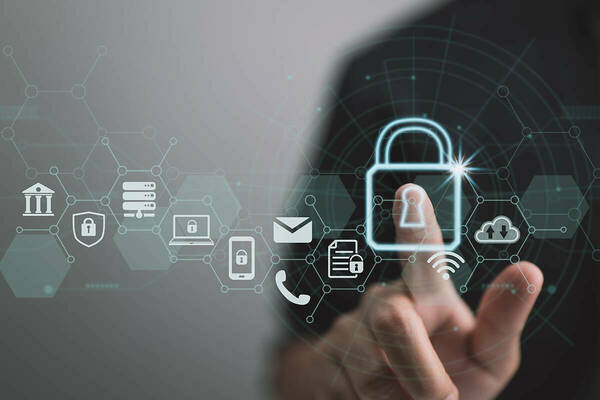
October is Cybersecurity Awareness Month. This observance is a great opportunity for organizations and businesses to focus on bringing increased awareness to their staff. While this is a good first step, developing good habits over time can help make a positive difference in online security all year long.
Cybersecurity is a shared responsibility and everyone plays a part. Armed with the right skills, you can lower your risk of being attacked whether at work and at home. Plus, the benefits can far outweigh the potential costs of losing valuable data, personal information, etc., from a cyber attack.
Here are some helpful tips to find out if your online security practices stack up:
Phishing
This continues to be one of the most common ways cyber criminals steal personal information by impersonating legitimate companies or people. Remember, not all phishing attempts are created equal. They can be delivered via email, phone call and SMS messaging.
Cyber criminals are also using more advanced tactics—making phishing attempts increasingly harder to recognize. Tips to identify a phishing message:
- It creates a sense of urgency and is unsolicited
- It has an unusual "From" or "Reply-To" address instead of a recognizable "@nd.edu" style address
- It includes a URL that doesn’t match the name of the institution it claims to represent
- It contains a link, attachment or other request take action
More information on the signs of phishing and how to report phishing attempts is available in this knowledge article.
Passwords & Multi-Factor Authentication
Passwords are the first layer of protection for our accounts and digital resources. Tips for creating strong passwords:
- Choose a long password (recommended minimum 16 characters)
- Avoid using passwords that are predictable or easy to guess
- Use a unique password for each account
- Do not write down passwords or share with others
In addition to creating strong passwords, Notre Dame also uses Okta multi-factor authentication for an extra layer of protection. Multi-factor authentication can also be enabled on many personal email, bank and shopping accounts.
More information on creating strong passwords and multi-factor authentication is available in this knowledge article.
Software Updates
Operating systems of devices that connect to the Internet like computers, televisions, cameras or tablets need to be updated on a regular basis. Software manufacturers will provide updates to address security issues, as well as introduce new features and performance enhancements for applications used on your computer and mobile devices.
It is important to apply these updates as soon as possible to keep your devices up to date. An easy way to do this is by enabling automatic updates for these software applications. Additionally, the Office of Information Technologies (OIT) will send email messages to campus about urgent security updates to commonly used software on campus.
By incorporating these tips into your daily routine when online at work or home, you are more likely to safeguard yourself from cyber attacks.
If you suspect your ND email or computer have been part of an attempted cyber attack, contact the Office of Information Technologies (OIT) Information Security team at infosec@nd.edu.
Learn how to protect yourself and devices with more tips and resources from the National Cybersecurity Alliance website.